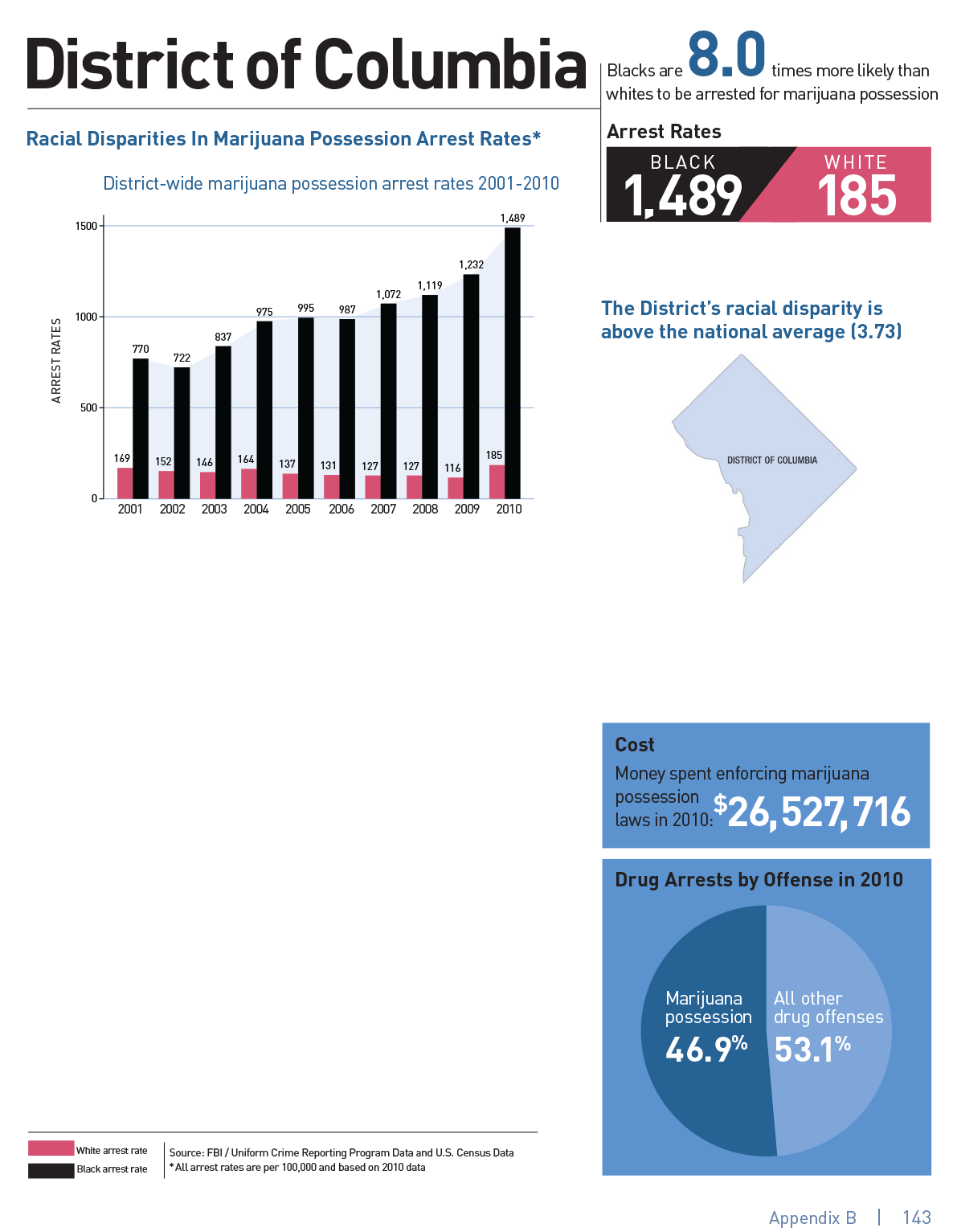Pro-Marijuana Activists Prepare Ballot Referendum to Legalize It in DC
The DC Council is set to begin debating marijuana decriminalization, but some advocates want the city to go all the way and make it legal to grow and smoke.
By Benjamin Freed, Washingtonian
A proposed ballot referendum that would have sought to decriminalize the possession and use of small amounts of marijuana in DC is off the table, but one of the lead organizers behind it says that’s just fine, because he plans to replace it with one that calls for legalization.
Adam Eidinger, a pro-pot activist who ran the now-shuttered Capitol Hemp stores, withdrew his decriminalization referendum today at a meeting of DC’s Board of Elections. He pulled it following a letter from DC Attorney General Irv Nathan, who wrote up several objections to the ballot initiative. But Eidinger says that Nathan’s objections were more procedural than political, and that in a few weeks’ time, he’ll submit a new referendum that calls for legalizing weed. Decriminalization, he says, was more of a test bubble.
Chiefly, Eidinger says, his original referendum raised an issue in calling for the creation of a drug awareness program to ward off underage residents from getting high. Under DC law, ballot referendums must be revenue-neutral, meaning that they cannot demand the DC Council create and fund any new programs. Despite the noble intention, though, Eidinger says that’s not a deal breaker.
“You can’t write a law that’s going to cost the taxpayers money,” he says. “We can reach our goals without that in there. But our top priority wasn’t to create that program, it was to make the voters feel more comfortable.”
Eidinger says his legalization referendum will still define to whom it would apply. The next initiative will spell out several specific rules about marijuana use, including:
- Restricting use by people under 21
- Allowing adults to carry up to two ounces
- Permitting home cultivation—which Eidinger equates with people who brew their own beer—of up to six plants
Eidinger is especially passionate about that last bit, saying that that a prohibition on people growing their own weed opens up the landscape for a “monopoly.”
“People who grow their own cannabis are patriots,” he says. “They don’t give their money to terrorist organizations or international drug cartels. There’s no money going to a drug dealer.”
A legalization referendum would also go much further than a piece of legislation the DC Council is about to take up. Council member Tommy Wells, who is also running for mayor, plans to introduce a decriminalization bill this fall along with Marion Barry. Under Wells and Barry’s bill, which has at least six co-sponsors—more than enough to pass—marijuana possession would be reduced from a criminal offense to one meriting just a ticket with a fine.
Eidinger says simple decriminalization would only encourage police to write flurries of tickets. He envisions “raids” in which officers inspect bars and nightclubs to see which patrons are holding and issue a thick pad of fines. Under current law, people caught with pot are arrested and booked, a greater drain on police resources.
“It’s going to become a shakedown law,” Eidinger says.
But marijuana arrests are on the rise in DC anyway, according to Metropolitan Police Department figures obtained earlier this year by Paul Zukerberg, a defense attorney who ran for a DC Council seat on a pro-legalization platform. In 2011, the statistics read, MPD made 5,759 marijuana-related busts. And the American Civil Liberties Union found that in 2010, DC police arrested black individuals for marijuana-related offenses 8.05 times as often as white people.
Wells, though, is not convinced that his bill would lead to a wider regime of weed fines. “What I’m doing is decriminalizing the behavior so that we don’t have so many young men getting in trouble,” he says. “Mine is more about social justice. [Eidinger’s] is more about treating the substance as a legal substance. That’s not a social justice issue, that’s about getting a new product into the mainstream that’ll get you high.”
The DC decriminalization bill is modeled a Massachusetts law that went into effect in 2009. Last week, the US Justice Department, which still classifies marijuana as a dangerous illegal substance, said it will not interfere with state and local laws that decriminalize or legalize pot for either medicinal or recreational purposes. The move was a reassurance to DC’s burgeoning medical marijuana field.
Wells and Barry will hold their first public hearing on their decriminalization bill in early October. Meanwhile, Eidinger says he is furiously gathering volunteers—many of them exiting DC Superior Court following marijuana offense hearings—to gather signatures for the final draft of his referendum. He aims to get it on next year’s general election ballot.
Source: Washingtonian
